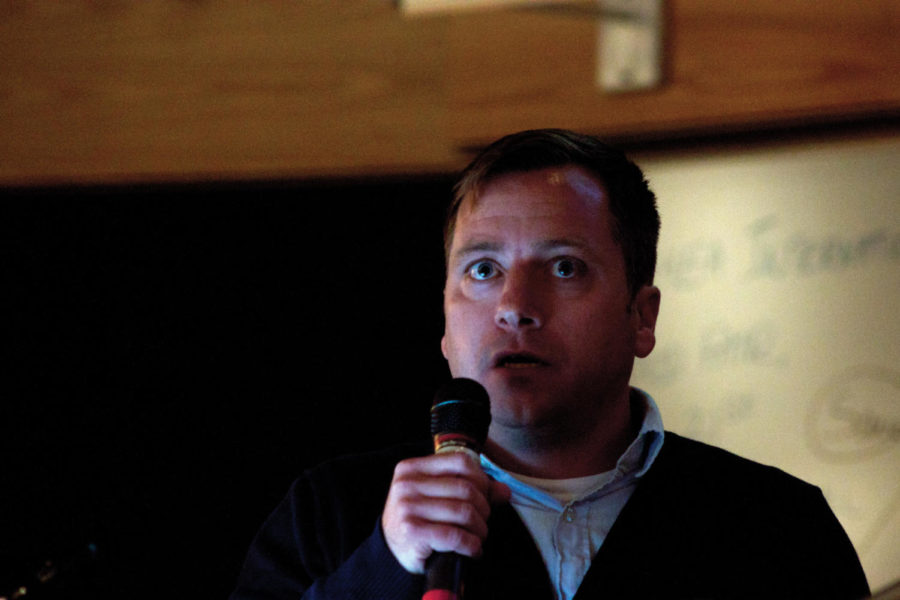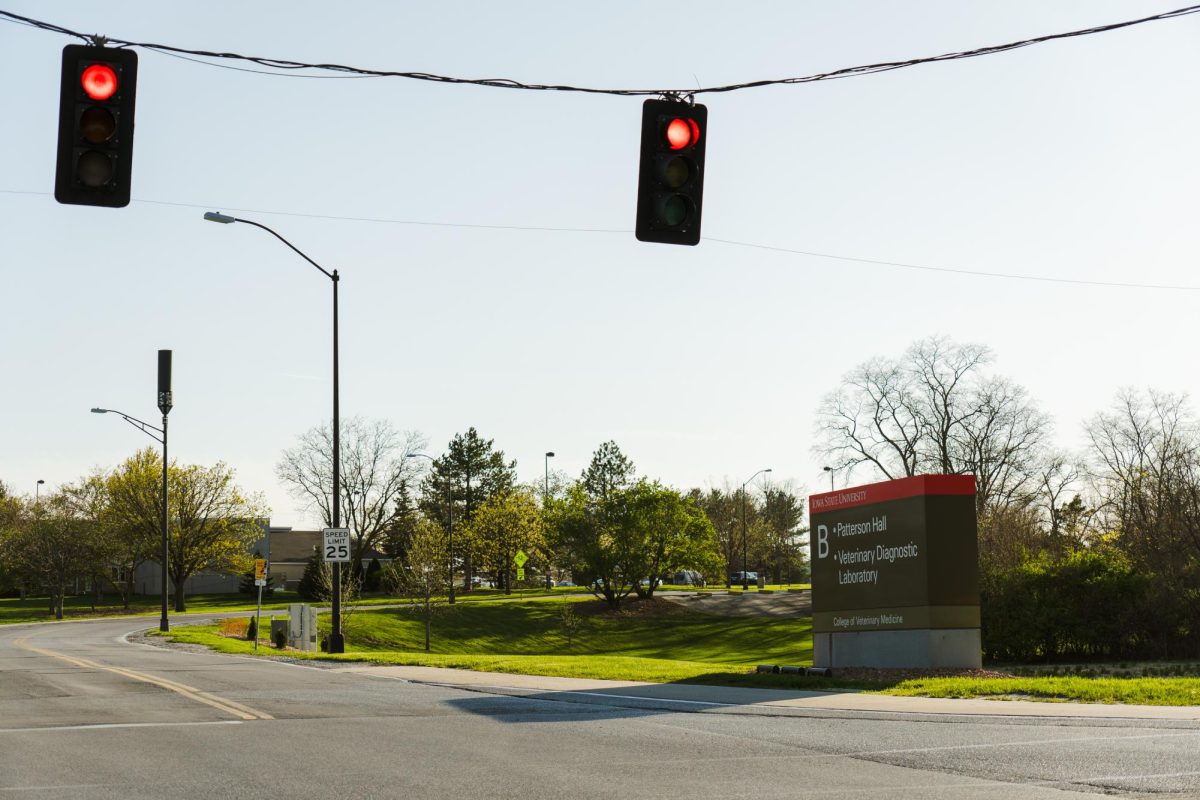Debating biblical sources
April 12, 2012
Is the Bible the source of absolute moral rules in today’s society?
This was the topic that Hector Avalos and Keith Darrell were both charged with debating in 2055 Hoover Hall on Thursday night.
Darrell, evangelist and member of Whitefield Fellowship, began the debate by taking the affirmative.
“This is a scary position for some of you,” Darrell said on the affirmative argument. “When you think of absolutes, what do you think of? For many it is intolerance. What about the Bible? Scarlet Letters? Yet, we must understand that if there is no absolute morality or value, then that includes the value of tolerance. So rejecting absolutes is not the way forward. The way forward is found in the teachings of Jesus.”
Avalos, professor in philosophy and religious studies, chose to debate on the negative. He began by stating the definition of the two agreed upon for an absolute moral rule.
“An absolute moral rule is one that does not change due to time or circumstance,” Avalos stated. “[Darrell’s] rules ultimately rest on circular reasoning. … Rules change due to time; some rules are contradictory, and some are too general.”
Both began with 20 minute opening statements followed by several rounds of rebuttals. The two ended with five minute closing statements and then continued to answer questions from the audience.
“The gist of my argument is if there is no God, there are no norms,” Darrell said after the debate. “A norm is like a duty or responsibility. There are … responsibilities, so there is a God.”
Avalos chose a visual presentation compared to Darrell’s read script. Avalos used past quotes from Darrell, what he displayed as contradictory statements from the Bible that dealt with the murder of children and slavery and what Darrell described as the use of “sympathy.”
“The morality that he claims is absolute, there is no such thing,” Avalos said.
Darrell argued that Avalos’ metaphysical, epistemology and ethics were unreasonable because he “has no knowledge beyond the sensible. … [Avalo’s epistemology] is self-rebutting and destroys normativity,” and “because he [Avalos] negates all ethical facts,” with the basis of quotes from Avalos’ books and beliefs.
No winner was officially declared when the debate was over, but both Avalos and Darrell felt that the debate went well.
Darrell received the majority of questions, which continued for nearly as long as the debate itself.
“I think it’s a really important topic,” said Kristoffer Scott, the moderator of the event and a senior in electrical engineering. “Before we go along with them [beliefs], it’s good to look at the different viewpoints.”
Matt Brown, sophomore in pre-business, attended the debate and also felt that it went well.
“It’s good to have that type of open forum,” Brown said. “It brings both crowds out to hear the sides. … I love the dialogue that takes place.”
It was Darrell’s first time participating in this form of debate, but he stated that he would love to do it again.
Avalos, who has participated in multiple debates similar to this one in the past, felt that the debate accomplished its main goal, education, and was happy to hear the challenging questions and see the discussions starting in the audience.
The debate was sponsored by the ISU Atheist and Agnostic Society and the ISU Philosophy and Religious Studies Club.

















